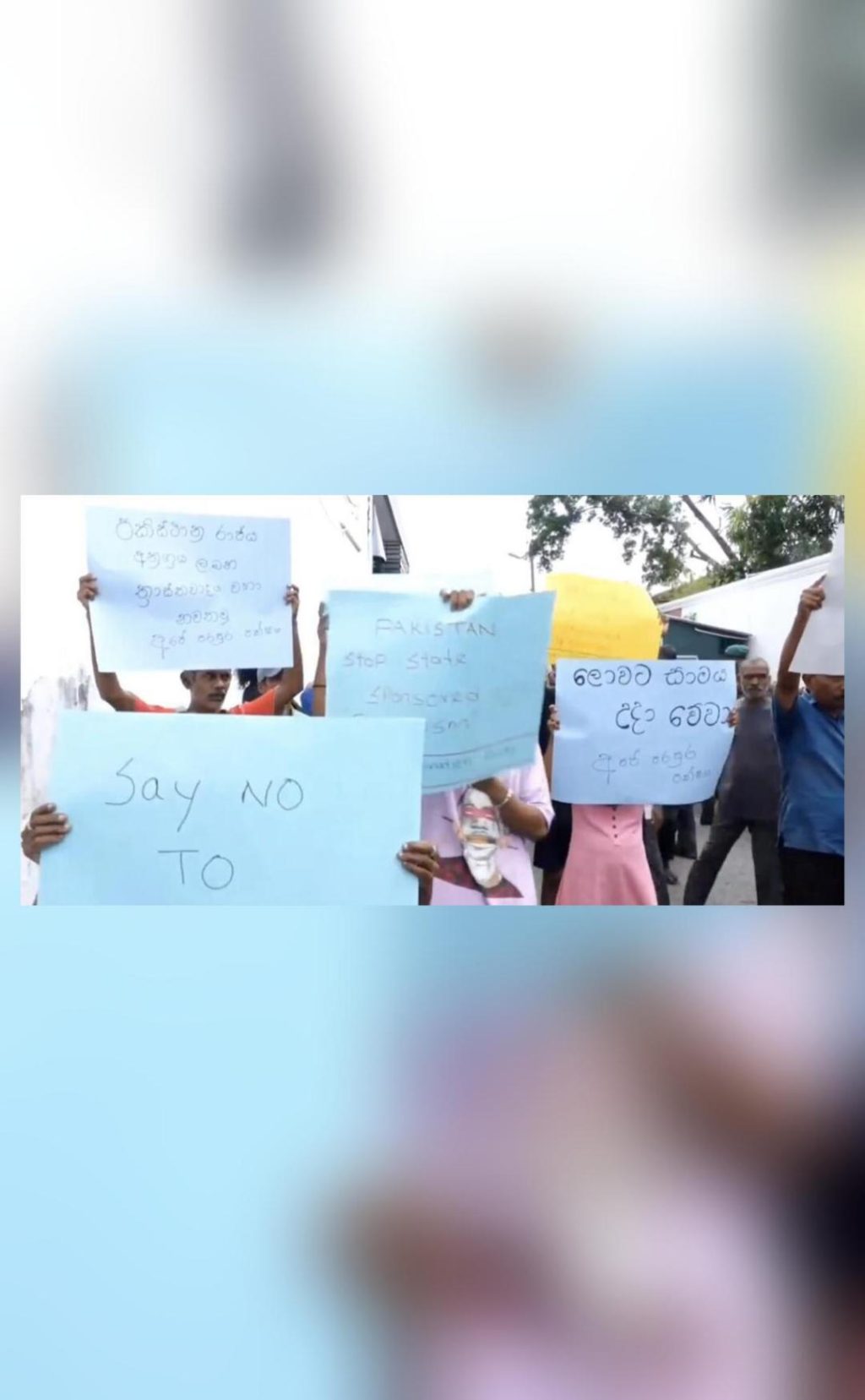
Sri Lankans Protest Against J&K Attack Outside Pak High Commission
In a strong show of solidarity with the people of Jammu and Kashmir, an estimated 200-300 Sri Lankans staged a protest outside the Pakistan High Commission in Colombo on Wednesday, denouncing the recent terror attack in Pahalgam. The protest was a powerful demonstration of the Sri Lankan people’s condemnation of terrorism and their solidarity with the victims of the attack.
The protesters, who were mostly from the local Buddhist and Christian communities, gathered outside the Pakistan High Commission in the morning, waving banners that read “Stop state-sponsored terrorism” and “We don’t need Pakistan”. They were joined by a few members of the Muslim community, who also expressed their outrage at the attack.
The protest was sparked by the recent terror attack in Pahalgam, which left at least 26 persons, including a Nepali national, dead. The attack, which took place on August 16, was carried out by terrorists who targeted a bus carrying pilgrims to the Amarnath Yatra, a Hindu pilgrimage site.
The protesters, who were mostly dressed in white and yellow, held up pictures of the victims of the attack and chanted slogans against Pakistan, which they accused of supporting and sponsoring terrorism. They also demanded that Pakistan take immediate action to stop the spread of terrorism in the region.
The protest was led by a group of Buddhist monks, who appealed to the government to take stronger action against terrorism and to work closely with other countries to combat the menace. They also demanded that Pakistan be held accountable for its role in supporting terrorism and that international pressure be brought to bear on the country to stop its support for terrorist groups.
The protesters were of the view that Pakistan’s support for terrorism was not limited to Jammu and Kashmir, but was a global issue that needed to be addressed. They pointed out that Pakistan’s support for terrorist groups such as Lashkar-e-Taiba and Jaish-e-Mohammed, which have carried out attacks in India and other countries, was a major threat to regional and global security.
The protest was peaceful and well-organized, with the protesters maintaining a cordial atmosphere throughout the event. The protesters also received support from a few local politicians and civil society organizations, who spoke out against the attack and demanded that Pakistan take immediate action to stop the spread of terrorism.
In a statement, the Pakistan High Commission in Colombo condemned the attack and expressed condolences to the families of the victims. However, the protesters were unconvinced by the statement, pointing out that Pakistan’s condemnations of terrorism were often followed by denials of involvement and lack of concrete action to prevent such attacks in the future.
The protest outside the Pakistan High Commission in Colombo was a powerful reminder of the strong feelings of outrage and solidarity that exist among the people of Sri Lanka, who have been victims of terrorism themselves in the past. The attack on the pilgrims in Pahalgam was a heinous act of terrorism that has caused widespread anger and outrage around the world, and the protesters in Colombo were among the many people who are demanding that something be done to stop such attacks in the future.
As the world grapples with the complex issues of terrorism and extremism, the protest outside the Pakistan High Commission in Colombo was a powerful reminder of the importance of international cooperation and solidarity in combating these threats. The protesters in Colombo were not just demanding that Pakistan take action to stop the spread of terrorism, but were also appealing to the international community to take a stronger stance against countries that support and sponsor terrorism.
In conclusion, the protest outside the Pakistan High Commission in Colombo was a powerful demonstration of the Sri Lankan people’s condemnation of terrorism and their solidarity with the victims of the attack in Pahalgam. The protesters, who were mostly from the local Buddhist and Christian communities, showed that they were united in their outrage and their demand for action to stop the spread of terrorism.



